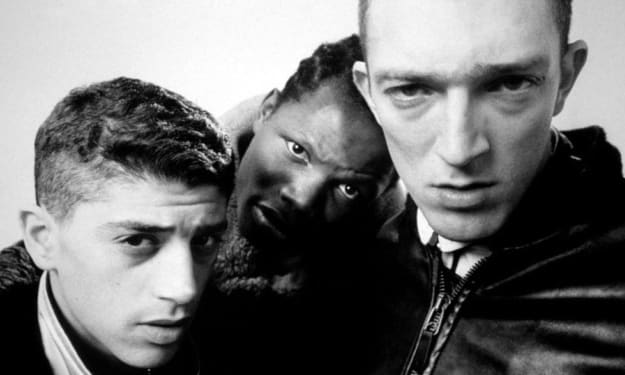
I've always found the topic of film versus digital to be really interesting because it's a question that doesn't have a clear answer. It seems like we're always trying to replace analog things with digital ones, but I'm not convinced that's always the right choice. The truth is probably somewhere in the middle. People don't like that answer though, they want to know which one is better.
We rely so much on digital technologies now, thinking they can solve everything, but at the end of the day, it's just ones and zeros. It has its limitations.
Let's talk about the science behind it for a moment, forget about aesthetics. Digital will never fully replicate film because the photochemical process is completely different from how a digital sensor captures light. I'm not an expert on digital sensors, but ultimately, you're dealing with zeros and ones when it comes to what ends up on that memory card. Digits are finite and man-made, while chemistry is not. Just understanding this alone, there's no way a digital image can exactly replicate film.
Personally, I think film is beautiful. Whenever I see a film shot by a talented cinematographer, I can't deny how stunning it looks. People describe it as warm, and I can relate to that. It doesn't feel cold and stark. It has a roll-off, meaning there's no distracting sharpness to it. It also has amazing dynamic range, so nothing is too black or blown out. It bends and stretches well when there's a wide range of light in a frame. It still looks good without blowing out or crushing the blacks. And it has movement and texture to it, some people call it grain. These are just a few examples of what makes great film look so special.
The level of pressure and precision on the filmmakers to get each shot right the first time. Additionally, film has a unique aesthetic that digital cameras often struggle to replicate. The grain, texture, and color palette of film can create a nostalgic and timeless feel that many directors find appealing.
Furthermore, shooting on film can also enhance the overall cinematic experience for the audience. The physicality of film, the sound of the projector, and the anticipation of waiting for the film to develop all contribute to a more immersive and magical viewing experience.the film strip. This process creates a physical, tangible medium that captures and preserves the images. On the other hand, digital filmmaking relies on electronic sensors to capture and store images. Instead of using light-sensitive emulsion, digital cameras use sensors that convert light into digital information. This information is then processed and stored as digital files. Unlike film, digital technology allows for immediate playback and editing, as well as easier distribution and sharing. Now, let's consider the impact of these different mediums on the audience's interpretation of a story. When watching a film shot on celluloid, there is a certain nostalgia and authenticity that comes with it. The grainy texture, the imperfections, and the physicality of the film strip all contribute to a unique viewing experience. This medium has a way of evoking emotions and creating a sense of connection with the past.
On the other hand, digital filmmaking offers a sleek and polished look. The sharpness and clarity of digital images can enhance the visual experience and create a sense of realism. Additionally, digital technology allows for more flexibility in terms of post-production and special effects. This can result in visually stunning and immersive storytelling.
The choice of medium in filmmaking is not just a technical decision, but a creative one as well. Filmmakers carefully consider the medium that best suits their artistic vision and the story they want to tell. Whether it's the warm tones and organic feel of film or the crispness and versatility of digital, the medium becomes an integral part of the message.
In conclusion, the medium used in filmmaking is not just a means of capturing and presenting a story. It is a powerful tool that shapes the audience's perception and interpretation of that story. Whether it's film or digital, the medium is the message. So next time you watch a movie, pay attention to the medium and how it influences your experience.





Comments
There are no comments for this story
Be the first to respond and start the conversation.